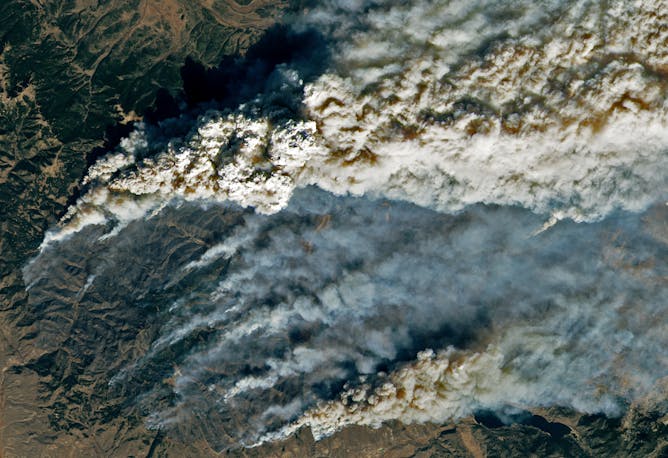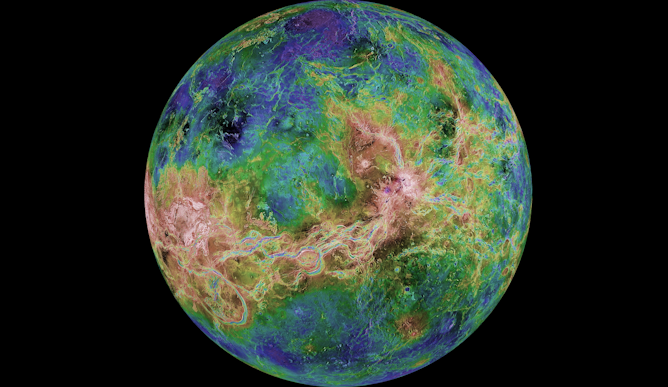|
Over the six-and-a-half years we’ve had an environment desk at The Conversation U.S., our editors have published dozens of stories on wildfires. This week, we ran an article, based on a study published Monday, that provided me a new perspective on current wildfires and last year’s active season. By studying charcoal in the sediment layers that built up in lake beds, a team of paleoecologists reconstructed wildfire conditions over the past 2,000 years and found evidence that many ecosystems are entering uncharted territory. Their findings also show how the increasing frequency of fires over the millennia has closely tracked rising temperatures.
NASA earlier this month announced it will be sending probes to Venus for the first time since 1989. In reading the story, I learned that scientists believe the planet may have once looked a lot like Earth, even though it is now surrounded by greenhouse gases that keep surface temperatures over 800 degrees Fahrenheit. The mission, as described by a “Venus evangelist,” is to gather clues as to why a rocky planet almost the same size as Earth became so different from our home.
The fallout continues from the FDA’s decision last week to approve an Alzheimer’s treatment called aducanumab. To understand the controversy, we got in touch with pharmacist and researcher C. Michael White from the University of Connecticut to unpack the issues, including the biomarker evidence that was used as well as the price tag. In case you haven’t absorbed the implications of the approval, his analysis is well worth a read.
Also this week:
If there’s a topic you’d like our team of science editors to investigate, please reply to this email.
|

Colorado’s East Troublesome Fire jumped the Continental Divide on Oct. 22, 2020, and eventually became Colorado’s second-largest fire on record.
Lauren Dauphin/NASA Earth Observatory
Philip Higuera, The University of Montana; Bryan Shuman, University of Wyoming; Kyra Wolf, The University of Montana
Scientists studied charcoal layers in the sediment of lake beds across the Rockies to track fires over time. They found increasing fire activity as the climate warmed.
|

Two new NASA missions hope to answer important questions about Venus’ past.
NASA/JPL/USGS
Paul K. Byrne, North Carolina State University
Two new NASA missions – VERITAS and DAVINCI+ – are headed to Venus. The missions will use radar and a probe to learn about Earth's hard-to-study and potentially prophetic neighbor.
|

Do the benefits of approving a drug before confirming it works outweigh the potential costs?
monkeybusinessimages/iStock via Getty Images Plus
C. Michael White, University of Connecticut
The FDA approved Alzheimer's disease drug aducanumab despite minimal evidence of its efficacy. Whether this decision ultimately hurts or helps patients depends on data researchers don't yet have.
|